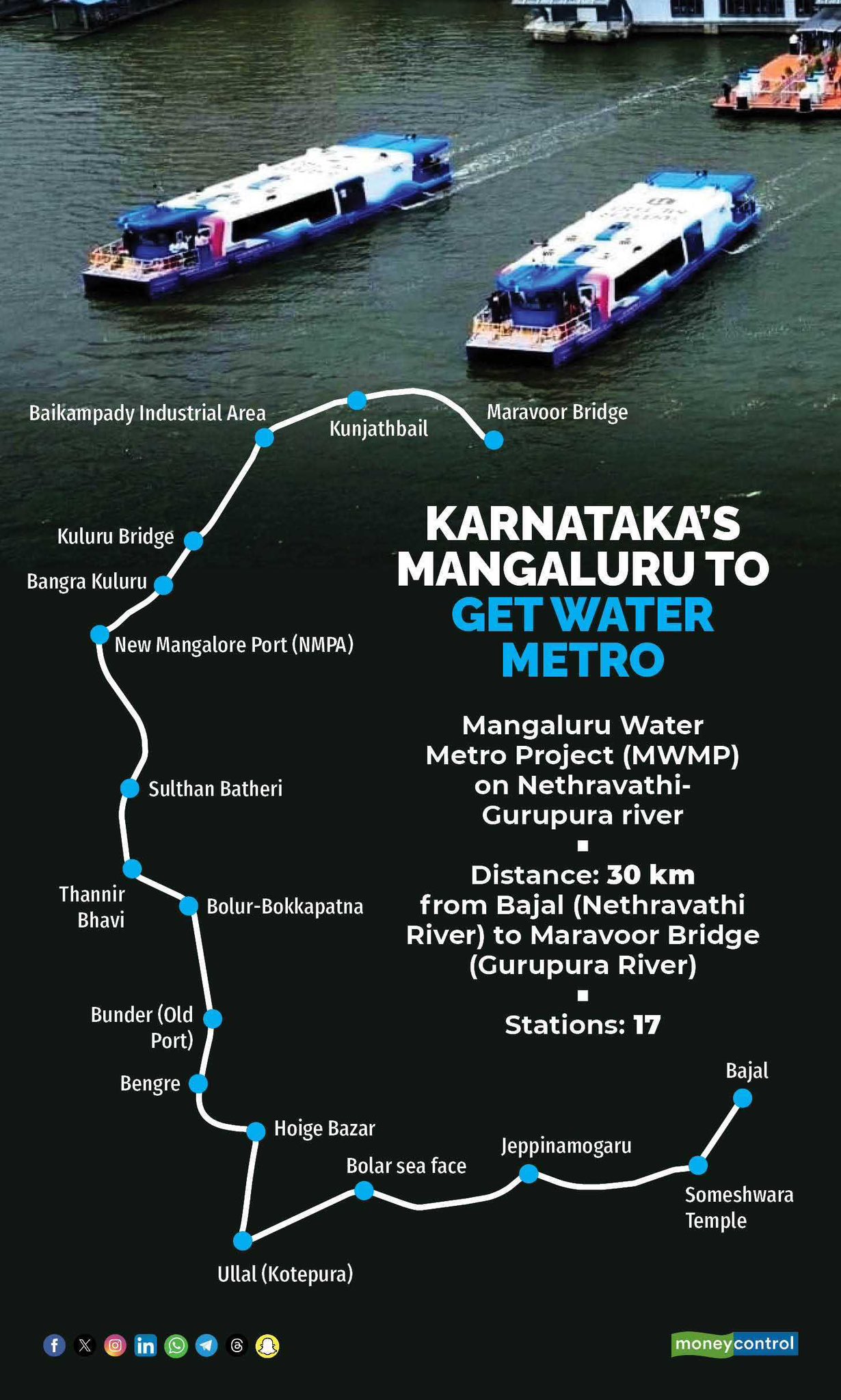Mangaluru (Karnataka), Nov 4: After being endowed with multi connectivity facilities like three national highways, port and airport, Mangaluru city is now looking at a significant move towards sustainable urban mobility as the Karnataka Maritime Board (KMB) has announced plans for the Mangaluru Water Metro Project (MWMP), officials said on Monday.
This ambitious initiative aims to transform public transportation in the state, utilising National Waterways to connect areas along the Nethravathi (NW-74) and Gurupura (NW-43) rivers, they said.
Set to become India's second-largest water transport system after Kochi, the project promises an eco-friendly, economical and efficient mode of travel, the officials said.
According to officials, the MWMP will connect isolated communities from Bajal to Maravoor, enhancing accessibility and promoting the holistic development of these regions. The initiative is expected to boost local livelihoods and improve the standard of living through integrated transport networks.
According to the project report available with PTI, the MWMP will be rolled out in phases, with the initial stretch covering 30 kilometres along the Nethravathi and Gurupura river backwaters.
The priority route, beginning at Bajal on the Nethravathi and extending to the Maravoor Bridge on the Gurupura, will feature around 17 modern Metro stations.
Key locations such as Someshwara Temple, Ullal and the New Mangalore Port are included in the proposed route. State-of-the-art electric and diesel catamaran boats will be deployed, equipped with essential amenities to ensure a high standard of comfort and operational efficiency.
A comprehensive Feasibility Report (FR) will assess the project's viability, presenting a detailed cost-benefit analysis, market potential, operational strategies and environmental considerations.
"The report will objectively evaluate the project's merits and challenges, providing crucial information for decision-makers, stakeholders and investors," they said.
Officials in the port and fisheries subdivision told PTI that key areas of analysis has been based on assessing the potential to decongest old port areas, exploring the feasibility of cargo movement using Roll-on/Roll-off (Ro-Ro) water metros, examining water level variations influenced by tidal flows, integration with feeder services to ensure seamless last-mile connectivity, demand forecasts over a 25-year period, based on extensive socio-economic research of usage and utility of the MWMP.
The project's Terms of Reference (ToR) emphasise sustainable development, involving thorough site identification, user demand assessments and environmental impact studies. Comprehensive surveys such as LIDAR mapping, bathymetric studies and topographical analysis will ensure accurate planning and implementation, the officials told.
Furthermore, technical collaborations with national institutes of repute will support studies on wave tranquillity, vessel height clearance and infrastructure recommendations for jetties and repair facilities, they said.
A detailed environmental monitoring programme will assess air and water quality, noise levels and aquatic biodiversity in line with Ministry of Environment, Forest, and Climate Change (MOEF&CC) guidelines, the officials added.
The officials of the Maritime Board said the MWMP promises significant economic and environmental benefits, from easing traffic congestion to reducing air pollution. The project will also explore non-fare revenue streams and develop models to ensure financial sustainability.
A socio-economic impact assessment will measure the project's contribution to regional development, backed by projected revenue from passenger fares and ancillary services, a senior official said.
The Board also aims at championing cleaner and greener transportation and to set a precedent for sustainable urban mobility, positioning Mangaluru as a progressive city that leverages its waterways, he added.
Let the Truth be known. If you read VB and like VB, please be a VB Supporter and Help us deliver the Truth to one and all.
Srinagar (PTI): Property worth Rs 1 crore belonging to a notorious drug peddler was on Saturday attached in Jammu and Kashmir's Srinagar, police said.
A double-storey house on eight marlas of land situated at Wantpora Eidgah, belonging to Basit Bilal Dar, a notorious drug peddler, valued at approximately Rs 1 crore, a police spokesperson said.
He said Dar is involved in two cases registered under various sections of the NDPS Act.
During investigation, it was established that the accused had acquired the said property through illicit proceeds generated from drug trafficking activities, the spokesperson said.
Consequently, the property was attached under the provisions of the NDPS Act. The attachment proceedings were conducted in the presence of the two independent witnesses, strictly in accordance with the prescribed legal procedures, he said.
As per the attachment order, the owner has been restrained from selling, leasing, transferring, altering, or creating any third-party interest in the property till further orders, the spokesperson added.






